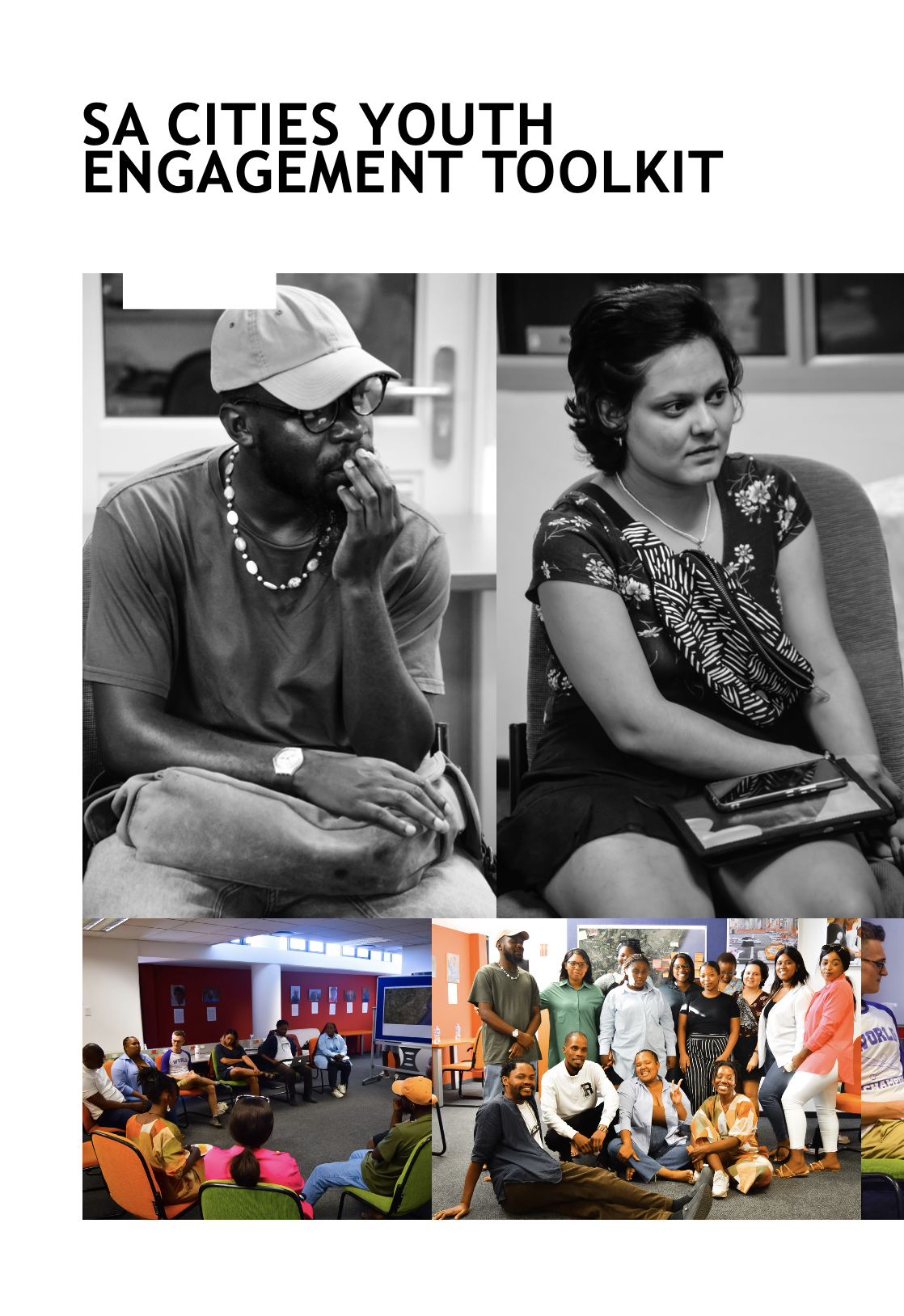SACN Youth Engagement Toolkit
The South African Cities Network (SACN) commissioned Bantu Lab to develop a youth engagement toolkit that encourages youth participation in governance and urban development. The toolkit was developed in collaboration with young people, city officials, and representatives of the private sector and international development cooperation agencies. Its purpose was to gain a better understanding of young people’s concerns and development needs in cities, as well as outline their concerns and identify pathways for inclusion. Two consultation sessions were held with the youth. The thematic focus of the eThekwini engagement was then creative economies, while Gqeberha’s was on urban safety. To encourage participants to think spatially, creative methodological tools were used to document the lessons from both cities. Defining what youth are and not treating them as homogeneous groups has been a critical part of the toolkit development. This toolkit is also intended for those seeking to foster youth participation in urban development issues and for all youth who are interested in participating in city-making processes. During the development of the toolkit, a review of the previous Youth and City Space research project was conducted. The review also incorporated other relevant work by SACN, such as the Visualization Studios and the biennial Young Planners and Designers Essay Competition.
In addition, a diagnostic analysis of the youth engagement landscape was carried out. In addition, a further analysis of the youth engagement landscape was conducted at the national, provincial, and local levels to gain a better understanding of policy and advocacy practices and the role of civil society. An overview of the cultural and creative industries was presented, focusing on the status quo in the city of eThekwini Municipality, and the country as a whole. The issue of urban safety was also examined in a broad sense in South Africa and in Nelson Mandela Bay. There was also some reflection from city practitioners, which put into perspective the work of municipalities and other government agencies in relation to youth participation.
City practitioners’ reflections were recorded and produced as a series of themed podcast episodes. The toolkit concludes with some recommendations on how cities can support young people and encourage meaningful participation in governance and decision-making processes.

